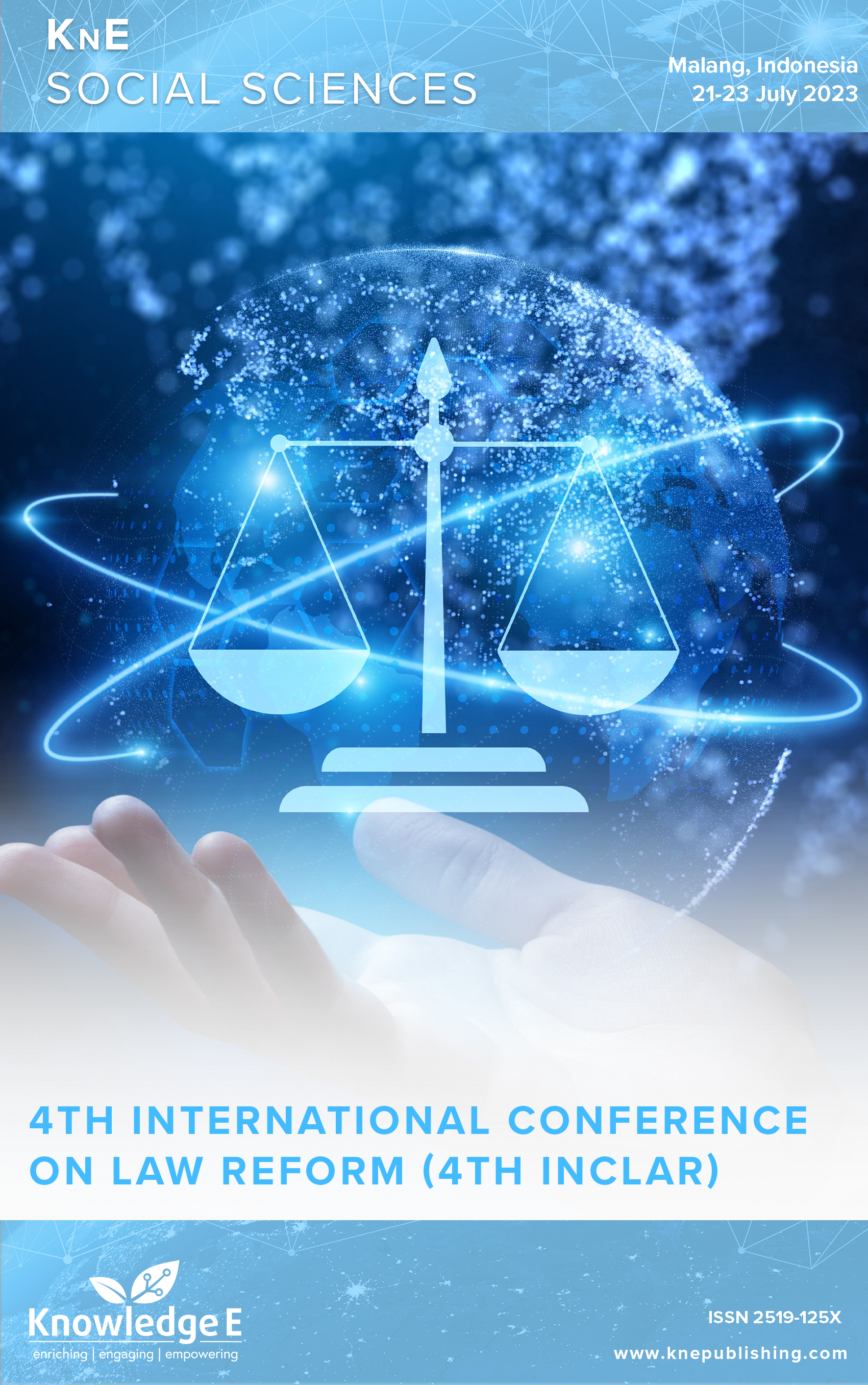The Role of Traditional Heads in Resolving Land Disputes in Sekerat Village, Bengalon District, East Kutai Regency East Kalimantan Province
DOI:
https://doi.org/10.18502/kss.v8i21.14708Abstract
The role of traditional heads in resolving land disputes that occur in Sekerat Village, East Kutai Regency provides a solution in solving problems faced by warring communities because of land disputes, especially customary land. This is so that the problem does not take place continuously causing a dispute between the two disputing parties. This type of research is descriptive with a qualitative approach, using purposive sampling techniques as informants. This study uses qualitative data analysis methods. The people of Sekerat Village have their own way of solving the problem outside court or non-litigation, namely through the traditional head in his territory. Where they feel that the problem can be solved relatively faster, can be materialized, low cost, and its settlement is carried out by peaceful means through deliberation. And historically, the culture of Indonesian society is very upholding high deliberative approach.
Keywords: role, traditional chief, settlement, land disputes
References
Berry D. Pokok-Pokok Dalam Sosiologi. Raja Grafindo Persada: Jakarta. Hadikusuma, Hilman. Bandung: Pengantar Ilmu Hukum Adat Indonesia. Mandar Maju; 2013. 2008.
Harsono B. Hukum Agraria Indonesia Sejarah Pembentukan Undang Undang Pokok Agraria Isi dan Pelaksanaannya. Jakarta: Djambatan; 2015.
Kertasapoetra G. Hukum Tanah, Jaminan Undang-Undang Pokok Agraria Bagi Keberhasilan Pendayagunaan Tanah. Jakarta: Bina Aksara; 2015.
Koentjaraningrat. Pengantar Ilmu Antropologi. Rineka Cipta: Jakarta. Maria.S.W. Sumarjono, 2001, Puspita Serangkum Masalah Hukum Agraria. Liberty: Yogyakarta. 2009.
Margono S. ADR dan Arbitrase, proses Pelembagaan dan Aspek Hukum. Jakarta: Ghalia Indonesia; 2009.
Miles MB, Huberman AM. dan Saldana, J. Qualitative Data analysis, A. Methods sourcebook, edition 3.USA: sage publications. Terjemahan tjetjep rohindi rohhidi, UI-Press. 2014.
Moleong LJ. Metodologi Penelitian Kualitatif. Bandung: Edisi. Revisi. Remaja Rosdakarya; 2011.
Muhammad B. Pokok-Pokok Hukum Adat. Pradnya Paramita: Jakarta. Nurudin, 2009. Jakarta: Pengantar Komunikasi Massa. Rajagrafindo Persada; 2012.
Pasolong H. Teori Administrasi Publik. Alfabeta: Bandung. Rahardjo, Satjipto. 2012. Bandung: Ilmu Hukum. Citra Aditya Bakti; 2013.
Raho B. Teori Sosiologi Modern. Prestasi Pustaka: Jakarta. Soekanto, Soejono. 2012. Sosiologi Suatu Pengantar. Grafisi Press: Jakarta. 2007.
Sugangga IG. Hukum Adat Khusus, Hukum Adat Waris pada Masyarakat Hukum Adat yang Bersistem Patrilineal di Indonesia, Semarang. 2008.
Sugiyono. Penjelasan Tentang Metode Penelitian. Alfabeta: Bandung. 2010.
Sumardjono MS. Kebijakan Pertanahan, Antara Regulasi dan Implementasi. Jakarta: Buku Kompas; 2009.
Tjokroadmidjojo B. Pengantar Administrasi Pembangunan. LP3ES: Jakarta. 2010.
Wulansari C. Dewi. Bandung: Hukum Adat Indonesia Suatu Pengantar. Refika Aditama; 2010.
Undang-Undang Nomor 5 Tahun 1960 tentang Peraturan Pokok Dasar Agraria.

